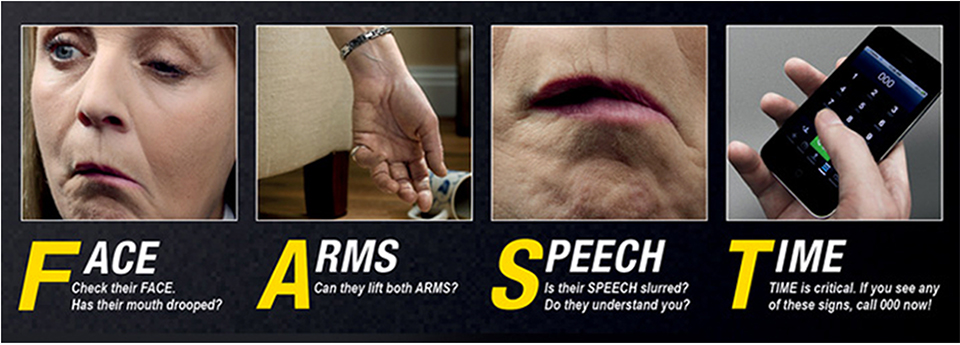Archives
Stay up-to-date and on top of your health with our e-Newsletter and receive updates on current treatments and vital health issues.
Stroke – Know When to Call 000

Act quickly and you could save a life. The longer a stroke remains untreated, the greater the likelihood of stroke-related brain damage.
In Australia, over 10,000 people die of stroke each year, and two thirds of survivors are left with some disability. Emergency medical treatment soon after symptom onset greatly improves the chance of survival and a complete recovery.
A stroke occurs when blood supply to the brain is interrupted, either due to a blood clot forming within an artery that blocks blood flow to the brain, or bleeding from a ruptured artery within the brain. The symptoms of a stroke will vary depending on which area of the brain is affected. There may be sudden onset of weakness and loss of sensation on one side of the body, loss of vision, trouble swallowing or speaking, facial drooping, dizziness, a fall or even loss of consciousness.
Time is critical so think FAST…
FAST is an acronym used to rapidly assess the common signs of a stroke:
Facial weakness – Check the face, is there a mouth/facial droop?
Arm weakness – Can they lift both arms?
Speech difficulty – Is their speech slurred? Can they understand you?
Time – act quickly. If you see any of these signs, call 000 IMMEDIATELY
Even if these signs are transient, lasting only seconds or minutes, it is important to seek medical treatment immediately as it may be a warning of an imminent more severe stroke. Early treatment in hospital may include medication to dissolve or prevent a blood clot from forming or worsening.
However, prevention is always better than cure. Understanding and reducing the risk factors for stroke is the first and most important step. These include:
- Family history;
- Advancing age ie > 55 years;
- Elevated blood pressure;
- Overweight;
- Smoking;
- Diabetes, and a number of other medical conditions such as Atrial Fibrillation, or clotting diseases.
Not all of these risk factors are modifiable, such as our family history or age, but regular medical check-ups and making healthy lifestyle choices can minimize some of these contributing factors. Nonetheless, stroke can happen to anyone so remember “FAST “ and act FAST if you or someone around you experiences any of the signs of stroke.